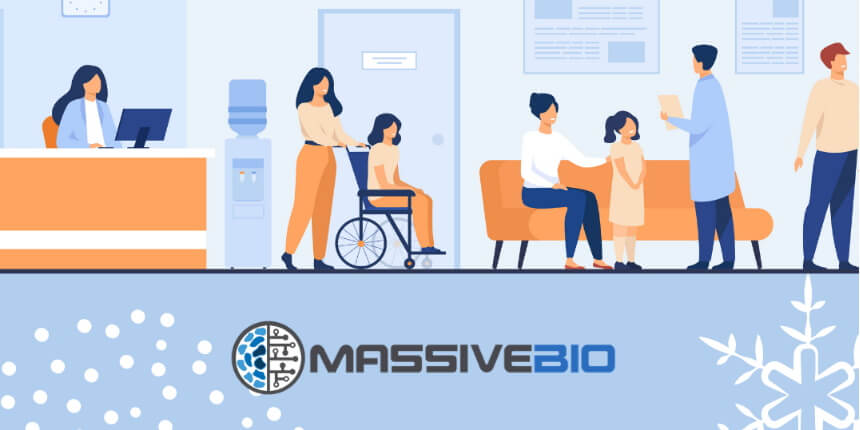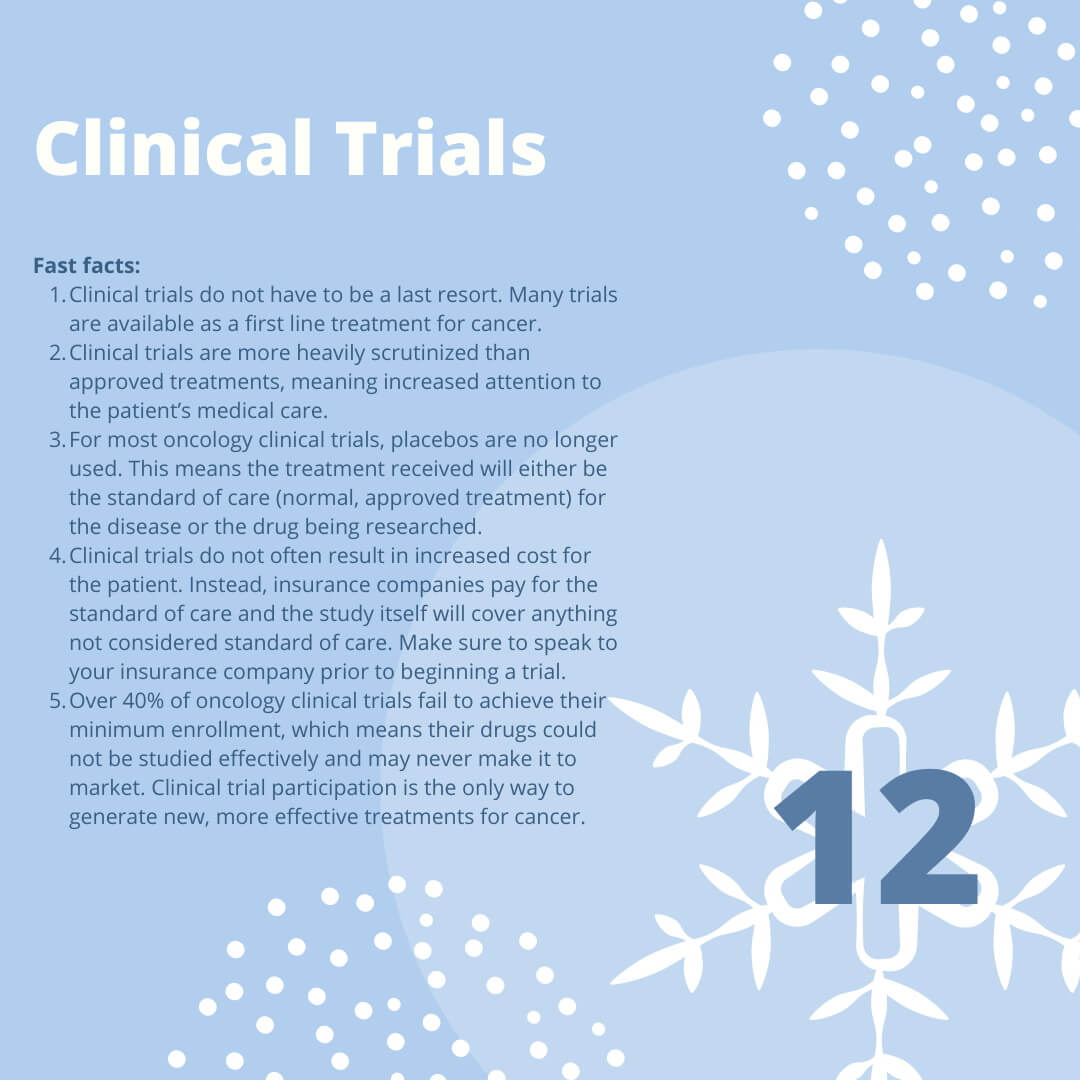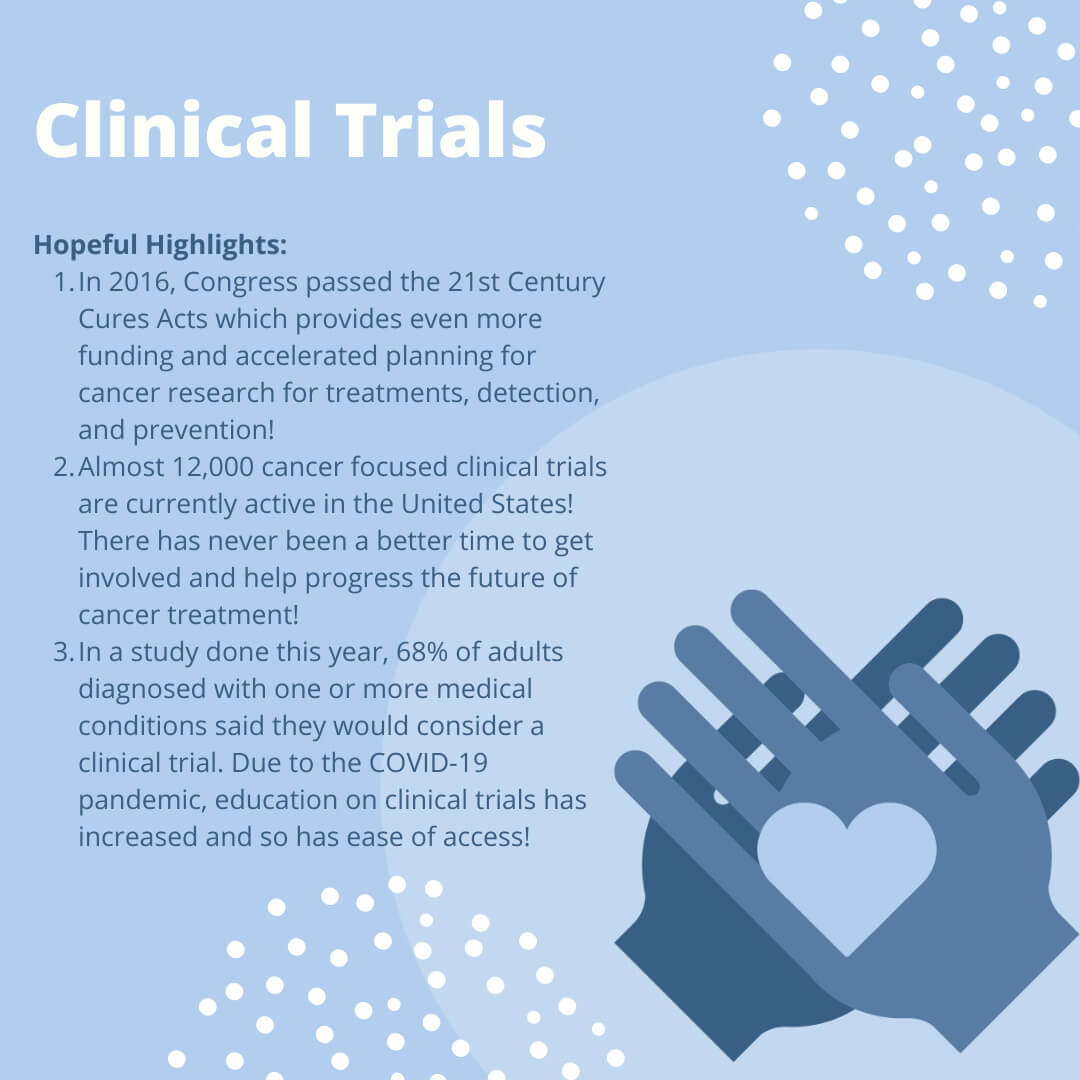
Clinical Trials
Fast Facts

- Clinical trials do not have to be a last resort. Many trials are available as a first line treatment for cancer.
- Clinical trials are more heavily scrutinized than approved treatments, meaning increased attention to the patient’s medical care.
- For most oncology clinical trials, placebos are no longer used. This means the treatment received will either be the standard of care (normal, approved treatment) for the disease or the drug being researched.
- Clinical trials do not often result in increased cost for the patient. Instead, insurance companies pay for the standard of care and the study itself will cover anything not considered standard of care. Make sure to speak to your insurance company prior to beginning a trial.
- Over 40% of oncology clinical trials fail to achieve their minimum enrollment, which means their drugs could not be studied effectively and may never make it to market. Clinical trial participation is the only way to generate new, more effective treatments for cancer.

- In 2016, Congress passed the 21st Century Cures Acts which provides even more funding and accelerated planning for cancer research for treatments, detection, and prevention!
- Almost 12,000 cancer focused clinical trials are currently active in the United States! There has never been a better time to get involved and help progress the future of cancer treatment!
- In a study done this year, 68% of adults diagnosed with one or more medical conditions said they would consider a clinical trial. Due to the COVID-19 pandemic, education on clinical trials has increased and so has ease of access!
More Details: Cancer Clinical Trials
Free Matching to Cancer Clinical Trials
- Your match report contains a detailed list of cervical cancer clinical trials that you may be eligible to enroll in to receive unique and nonconventional treatment. Standard treatment is not the only option.
- A patient advocate will review your report with you to answer any questions or concerns you may have and assist with enrollment if you decide to move forward with a trial.
- There’s no need to travel to a clinical trial site until the enrollment process is complete.
Our number one priority is creating positive outcomes for cancer patients. Let us help you today.

Leave a Comment
(0 Comments)